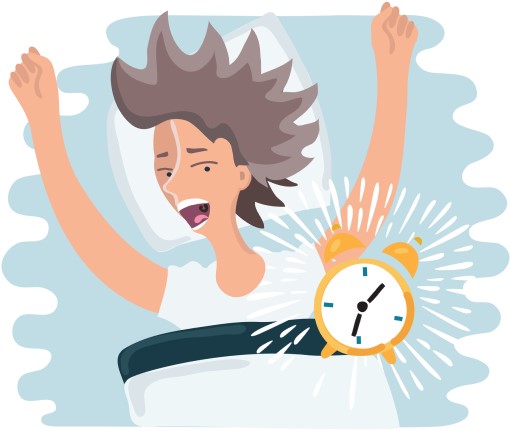
What to do if you’ve slept through your alarm for work: practical remedies and survival tips
By Jason Wooden, PhD | November 4, 2021
With 1 in 3 adults struggling with poor sleep, it’s no surprise if you’ve slept through your alarm for work. It may also happen because of underlying health issues, medications, mental health challenges, or if you’re a heavy sleeper.
Your options include trying a different alarm, moving it away from you, wake up phone apps, seeing a doctor, and changes to your work situation.
As embarrassing as it feels, you’re not the only who’s slept through an alarm for work
We’ve all gotten that sick feeling in our stomach.
You wake up feeling something isn’t quite right and suddenly realize you’ve slept through your alarm for work.
You hurriedly check your clock and see it’s almost 9AM!
Cue the panic.
Like I said, we’ve all been there.
In fact, polls reveal that in the US and Canada one in five employees show up late for work at least once a week for various reasons.
I wouldn’t be surprised if the numbers are similar in other countries.
Sleeping through an alarm and showing up late for work is admittedly more of an issue for jobs where you’re on the clock. However, it can also be an issue when you’re not there to do something critical or you miss a team meeting.
And let’s not forget the fallout for your coworkers. They’re counting on you to do your part and may have to cover for you.
If it happens occasionally, you may be able to get away with it. It’s when it keeps happening you can really get into trouble.
The risk is obvious – embarrassment, unneeded stress, a loss in trust from the boss, and the chance you may get fired.
Let’s take a look at what you can do to avoid sleeping through an alarm and to manage the fallout at work if it happens again.
The surprising reasons we may sleep through an alarm for work
People sleep through their alarms and wake up late for work for all sorts of reasons. Some are obvious, some not so obvious and may surprise you.
Let’s see what could be making it harder for you to wake up in the mornings:
You went to bed too late
Yeah, this one is pretty obvious. Unfortunately, too many people have a poor evening routine where they stay up late watching TV or some other activity, even when they know better.
You keep doing it even though you know you have to get up in the morning.
Sounds familiar?
Your sleep is poor
We live in a world where every night one in three adults struggle with insomnia. It’s not so surprising that some of them hit the snooze button or may completely sleep through an alarm for work.
Whatever the reasons are your sleep quality is poor, you just don’t feel rested and ready to go.
You’re a heavy sleeper
Some people are just incredibly heavy sleepers. They can sleep through just about anything – a crying baby, neighborhood noise, or even an alarm clock nearby on a bedroom nightstand.
Underlying health issues
Did you know there could be things going on with your body that could be making it harder for you to wake up?
Among the health issues that can cause people to feel more tired are:
- anemia (iron deficiency)
- underactive thyroid
- coeliac disease
- chronic fatigue syndrome
- diabetes
- too much calcium in your blood (hypercalcemia)
- infections
You have a sleep disorder
If poor sleep and waking up tired has become a fact of life for you, you may be suffering from an undiagnosed sleep disorder.
In the US, as many as 70 million people have a sleep disorder.
Shift work disorder is common among people who work nontraditional hours such as on an evening, night, or rotating shift. It’s just hard to keep your natural sleep clock on schedule when your sleeping at odd hours and out of sync with the sun.
Obstructive sleep apnea is another common sleep disorder that happens when air flowing to the lungs is restricted. It arouses you out of deep restful sleep into a lighter sleep and can leave you feeling as if you haven’t slept at all.
They’re also sleep disorders that cause you to wake at unusual times or make your body move during the night.
Medications
Most people are aware of how cold and allergy meds can make you feel drowsy. The same can also happen with anti-psychotics, anti-depressants, anxiety meds, muscle relaxants, heart meds, and prescription pain meds.
And sleeping pills can make it harder to wake up too!
Mental health challenges
Have you been feeling down lately? Depression is known cause for fatigue.
In fact, oversleeping is one of the symptoms for depression. The same can happen for people struggling with anxiety issues or seasonal affective disorder.
13 Things to try so you don’t sleep your alarm for work
Okay, now that we’ve looked at the reasons you’re sleeping through your alarm, let’s look at your options to wake up in time for work. Obviously, what you do will depend on your specific challenges and situation.
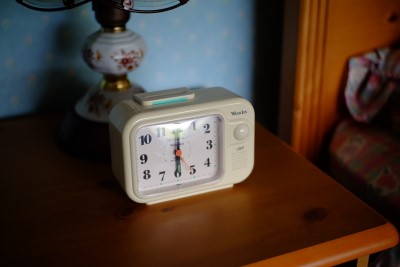
1) Move the alarm away from the bed
While it’s convenient to have your alarm right next to you, it’s all too easy to hit the snooze button. For some people, placing it farther way so they have to get up to turn it off was a game changer.

2) Try a different alarm type
It might be time to kick your current alarm clock to the curb.
Your options include trying something noisier or with annoying sounds that are harder to ignore. They’re even alarm clocks that will shake you.
A couple of options available on Amazon:
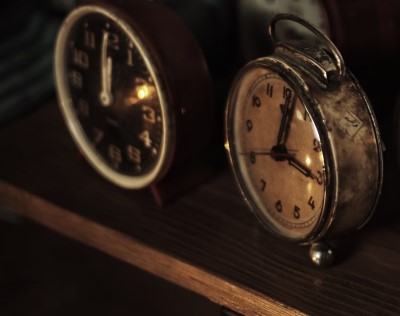
3) Set two alarms
You can try doubling up your alarms. Some people set both a physical alarm clock AND their smart phone to beep 15 minutes apart.
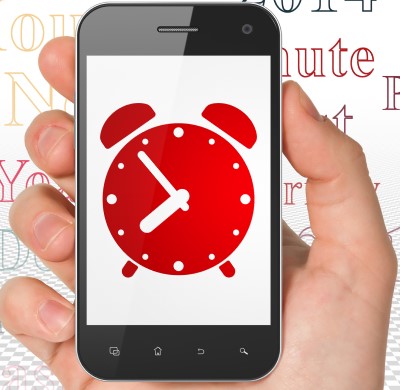
4) Try a phone app
With modern smartphones, there’s a wide variety of alarm clock apps that will wake you up in creative ways.
A couple options:
Early Bird
Allows you to set up complex patterns, limit the number of times you can snooze, and set up challenges that force you to be awake.
Alarmy
Gets progressively louder, to switch off the alarm you need to solve mathematical problems.
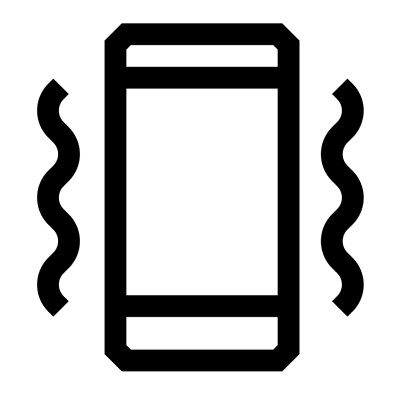
5) Set your phone to vibrate
Schedule your wake up time, set it to vibrate, and place the phone under your pillow.

6) Natural daylight
Our bodies are in tune with night and day. It might help to leave your shades open so in the morning your bedroom will be flooded with daylight to help signal your body to wake up.

7) Try a natural wake-up alarm clock
Speaking of the power natural light, online you can find innovative alarm clocks that slowly increases the amount of light they emit to gradually wake you up.
A couple of options available on Amazon:
Uses an LED light to gradually light up your bedroom 30 minutes before your alarm time.
Designed to naturally mimic the sunrise and sunset, comes with 5 wake-up sounds.

8) Find an emergency check buddy
Form a pact with someone you trust at work that if one of you appears to be late the other will call and check.
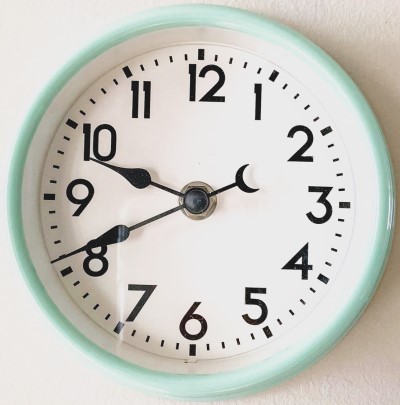
9) Change your work hours
Starting a couple hours later may help.
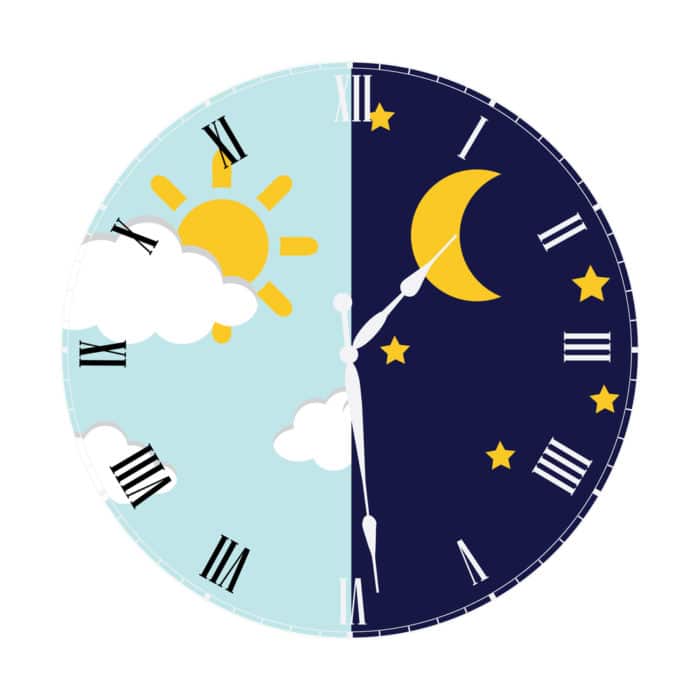
10) Change your work shift
Switching from night or swing shift to a day shift may help you wake up on schedule.
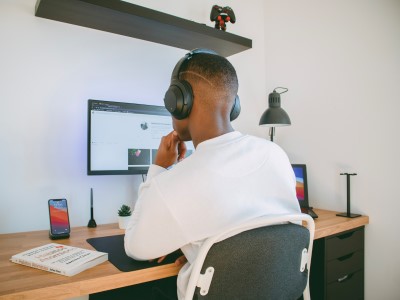
11) Switch to work from home
Eliminating the commute may free up some time for extra sleep and give you more of a cushion to start work on time.
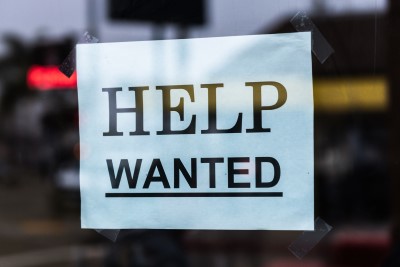
12) Change jobs
Maybe it’s time to switch to something that doesn’t start so early or requires you to clock in at a specific time.
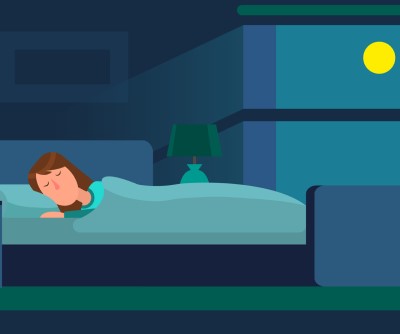
13) Get more sleep
This is by far the one of the best things you can do. When your body is well rested, you naturally wake up refreshed and ready to go.
You’ll also perform better on the job.
Hacks to help you survive the work day when you’ve slept through an alarm and woke up late
Once you make it to work, embarrassment isn’t the only thing you may have to deal with. You might be behind the eight ball on sleep, dragging throughout the day, and stressed out.
Depending on your situation, you may want to try:
Sneaking in a power nap
A quick snoozer can do wonders if it’s workable for your situation. You can try sneaking in a nap during a break or over lunch. If it’s not doable in your work area, relocate to your car.
Sleep experts recommend you keep your naps under 15-20 minutes so you don’t wake up in a brain fog. Also, set an alarm so you’re not late returning back to work.
Taking a walk
Getting the heart rate up and the blood flowing can raise your energy. If pressed for time, try a 10 minute walk
Getting up and moving around
Sitting still or standing for long stretches can make you feel tired. It’s also not best for you ergonomically.
Get up and take breaks to move your body every few hours.
Drinking water
Dehydration can make you more tired and make it harder to concentrate.
Healthy snacks
Healthy snacks can help keep your blood sugar and energy levels steady while at work. Avoid over sugary snacks that lead an energy crash hours later.
Look for foods with a mix of protein, complex carbs, and healthy fats.
Music
The right music can be energizing and help you make it through a lull in the day.
Avoiding computer fatigue
Staring at a computer screen for hours on end can strain your eyes and be tiring. Be sure to take regular breaks.
Mixing things up!
Doing the same thing for long stretches can sometimes lull you to sleep, especially if you show up to work sleep deprived and you’re doing something monotonous.
Try adding variety to the tasks of the day.
A change of scenery
Looking at the same thing every day can be monotonous. Switching to a new setting can sometimes be energizing.
Try taking your work to a lounge, conference room, or outdoor setting.
Keeping your work space cool
A warm room can lull you to sleep, especially after lunch. Try a cooler room temperature or cracking a window.
Adjusting your lighting
Working in a dim low-light room can also lull you to sleep. Try brightening up your work area with a lamp or with natural daylight through the windows.
Eating lighter meals
Heavy meals can slow down your metabolism and make you feel sluggish. Try eating lighter meals at lunch.
Dealing with the fall out
You may feel tempted to spin a good story if you’ve slept through your alarm for work. However, that would be the wrong thing to do.
Most people will see through it. Also, people may genuinely be concerned about you if you’re missing.
Instead, what might serve you better is to:
Call right away – don’t wait to call in
Be honest – let them know what happened
Apologize – sincerely let them know you’re sorry
Give an arrival time – let them know when you’ll realistically be there and available to work
Don’t make a big announcement – when you arrive just roll up your sleeves and get to work
Tips to improve your rest so you don’t oversleep
As I mentioned earlier, improving your sleep is one of the most important things you can do so you don’t sleep through your alarm for work.
When we get adequate rest, our bodies naturally wake up.
Unfortunately, we live in a world where so many people short-change sleep on a regular basis. However, sooner or later, you’ll pay a price that’s bigger than sleeping through your alarm.
Sleep deprived people don’t think as clearly, have a harder time coping, don’t perform as well on the job, and you’ll be more at risk for a myriad of health issues including depression.
So, you really need your sleep.
Depending on your situation and specific sleep challenges, there are plenty of things you can do:
Improve your sleep hygiene
Unfortunately, there’s a long list of things that affect sleep.
That makes it important that your everyday habits are the ones that support quality sleep. Bad sleep hygiene can sabotage the other things you do to improve your sleep.
For better sleep hygiene, you should:
- keep consistent wake up & sleep times
- avoid naps
- exercise during the day
- avoid large meals, alcohol, or stimulants such as caffeine before bedtime
- maintain a regular bedtime routine
- avoid using TVs, laptops, or other electronics before sleep
- keep your bedroom dark, cool, quiet, & relaxing
Get a check up
It’s important to see a doctor, especially if your insomnia becomes a long-term problem.
Too many people aren’t aware how many other medical issues can cause problems or worsen sleep. This includes things like chronic pain, heartburn, cancer, dementia, and asthma.
Medications can cause problems too.
And you may also be living with an undiagnosed sleep disorder such as obstructive sleep apnea.
Chat with a mental health specialist
Did you know there’s a strong link between poor sleep and depression? Many people who struggle with depression also struggle with sleep.
There’s also anxiety issues and seasonal affective disorder.
If you’re not careful, you can get into a downward spiral. If you’re really feeling down because of your situation, it’s important to get help.
Is there something more serious going on?
The reason you’re sleeping through your alarm for work may be because underneath the surface there’s something more serious going on.
Maybe you’re unhappy about your work situation or career.
Some signs you don’t like your job or find it unfulfilling are:
- you’re more anxious as Monday comes closer
- you’re miserable every morning
- you dread going into work
- lack of motivation for your work
- a decrease productivity
- you talk about your job negatively
- find it more difficult to focus on your work
- tired before, during, and after the workday
- work-life balance is suffering
- you get anxious or unhappy just thinking about work
If this is the case, it may be time to think seriously about working somewhere else or doing something different.
Sources:
1. “The Real Reasons Employees Are Late for Work”, 2021, Business News Daily
2. “More Canadians than Americans late for work: survey”, 2011, CTV News
3. “Talking Points”, World Sleep Society website
4. “What causes fatigue, and how can I treat it?”, 2020, MedicalNewsToday
5. “Sleep and Sleep Disorder Statistics”, American Sleep Association
6. “What to do when medication makes you sleepy”, 2019, Harvard Health Publishing
7. “Why does depression make you feel tired?”, 2020, MedicalNewsToday
Connect with us:
About Us
Better Sleep Simplified® was founded as a place for you to get clear and well-researched information.
Our goal is to make sure you know about your options so that you take action sooner rather than later.
Check us out on YouTube:
Watch and Learn
Helpful sleep tips, interesting sleep facts and statistics you want to know about
Affiliate Disclosure
This site is a participant in the Amazon Services LLC Associates Program and other affiliate advertising programs designed to provide a means for sites to earn advertising fees by advertising and linking to them.
Important: BetterSleepSimplified.com is for informational purposes only and is not intended or implied to be a substitute for professional medical advice, diagnosis, or treatment. Always consult a physician for sleep and health concerns. See additional information.




